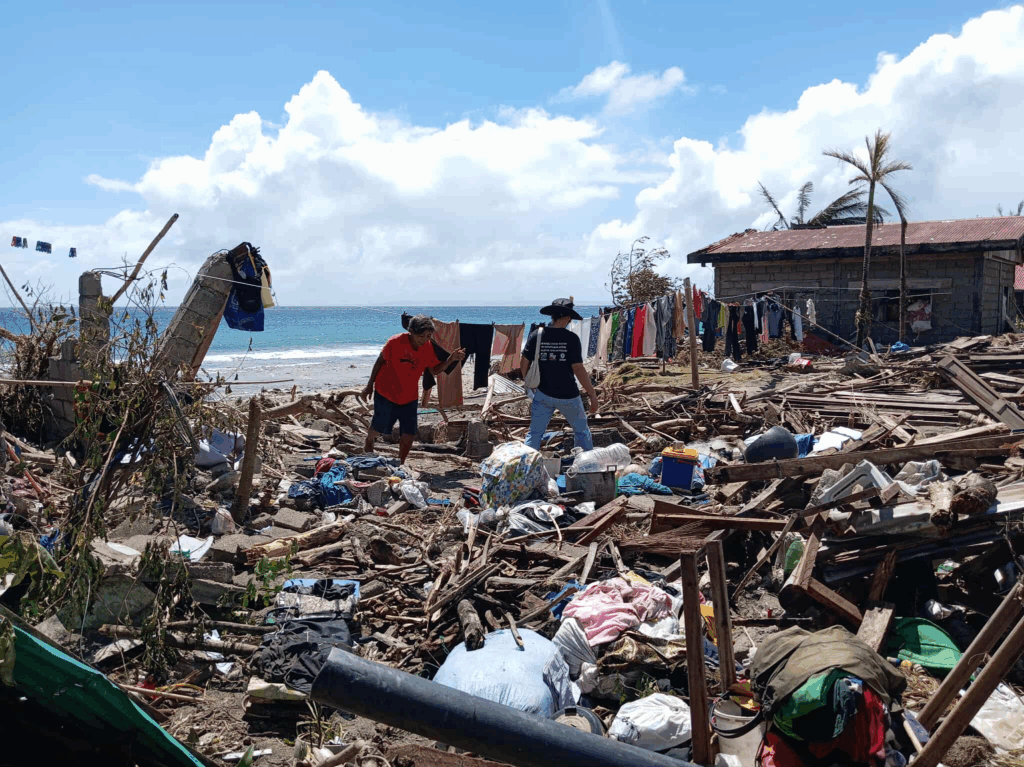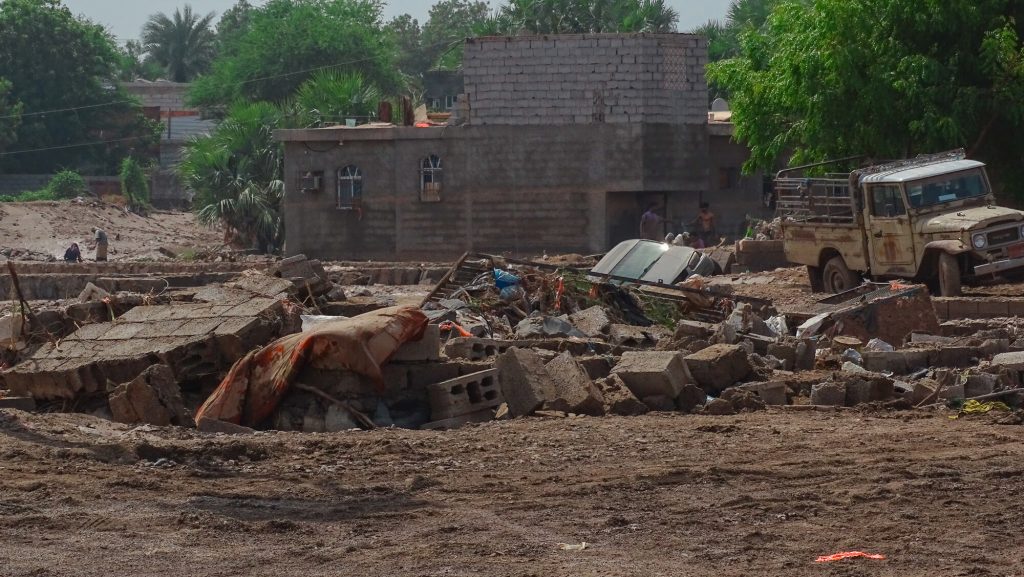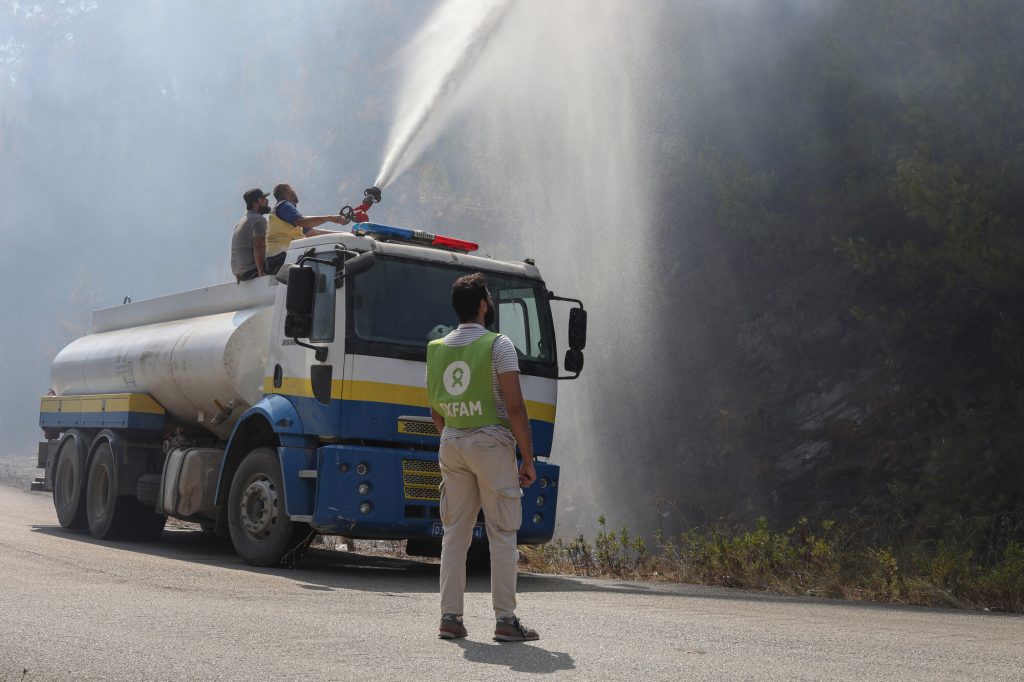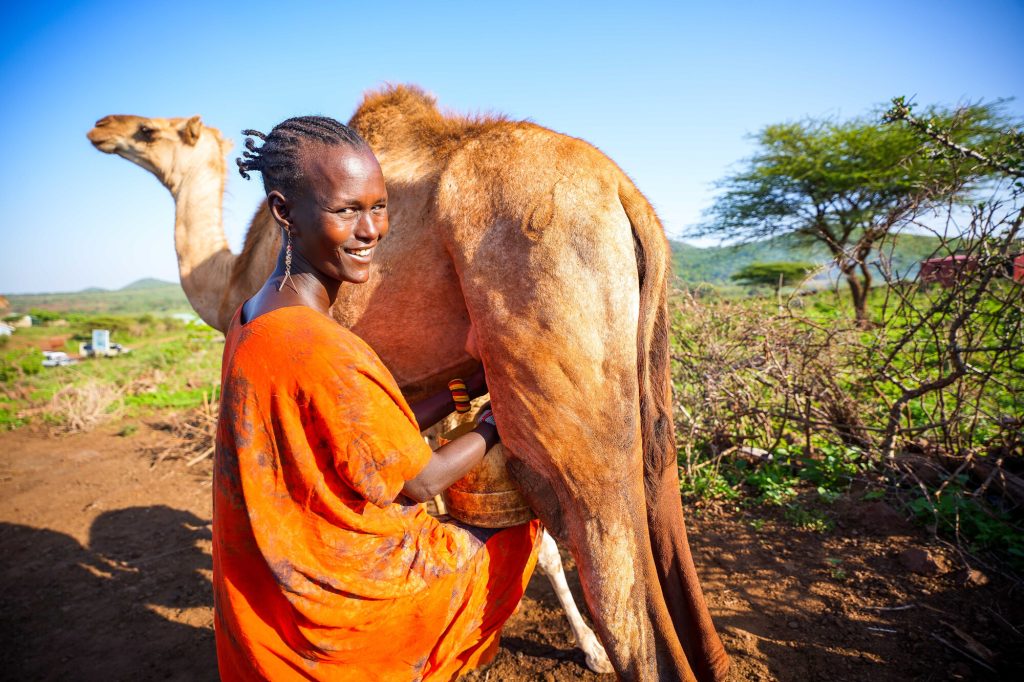Summer 2025: Compounding Climate Disasters
Summer 2025: Compounding Climate Disasters
While Canada faced widespread drought and above-normal temperatures this summer, climate-related disasters around the world reached alarming levels.
Philippines: Tropical Storms and Earthquake
In July, Tropical Storm Wipha brought widespread rainfall and flooding across the Philippines. Just days later, Severe Tropical Storm Francisco and Typhoon Co-May struck Northern Luzon with destructive winds. A total of 192 cities and municipalities were placed under a state of calamity due to the combined impact of these cyclones and monsoon rains.

Residents in San Fernando, Masbate search through the remains of their homes after Severe Tropical Storm Opong (Bualoi) tore through coastal communities, leaving widespread damage and debris.
Then in September, a magnitude 6.9 earthquake struck off the coast near Bogo City, Cebu, affecting over half a million people. More than 77,000 were displaced and 35,000 homes damaged, leaving families in urgent need of shelter, clean water, and hygiene facilities.
Oxfam Pilipinas and its local partners mobilized quickly to deliver life-saving aid—distributing food, hygiene kits, solar lamps, water, and cash assistance to urban and remote island communities.
This response aligns with the Philippines' new disaster management law, Republic Act 12287, which formally recognizes anticipatory action—a proactive approach to disaster preparedness.
"Since 2019, Oxfam Pilipinas has championed anticipatory action as a proactive response to hazards such as cyclones, flooding, and drought. By acting ahead of predictable shocks, we can prevent them from escalating into humanitarian emergencies."
— Lot Felizco, Executive Director of Oxfam Pilipinas
Yemen: Catastrophic Flooding
Since August, Yemen has been hit by devastating floods across multiple governorates, affecting over 350,000 people and claiming 62 lives. Infrastructure, homes, and farmland were severely damaged, and essential services disrupted.

Photo showing parts of roads, wall fences, and workshops affected by floods.
In Marib City and Al-Wadi District, windstorms and heavy rains destroyed 1,246 shelters and damaged over 7,400 more in displacement camps. The crisis deepened as more than 13,000 people arrived, fleeing conflict, airstrikes, and economic collapse.
Oxfam, with over 40 years of experience in Yemen, supports more than 25 displacement camps and surrounding host communities. Cash assistance remains a vital lifeline, helping families meet urgent needs for food, water, sanitation, shelter, and protection.
Syria: Wildfires in Latakia
Starting July 2, intense wildfires swept through Latakia Governorate in Syria, driven by extreme heat, dry conditions, and strong winds. The fires devastated forests, farmland, and villages, displacing over 1,150 people and affecting more than 14,000.

An Oxfam staff member stands near Civil Defense vehicles as volunteers battle wildfires in
Qastal Ma'af, rural Latakia.
In August, a second wave of fires hit rural areas, prompting full evacuations in several villages. Oxfam responded with emergency water trucking to support firefighting efforts, safeguarding hundreds of households.
Working in coordination with Civil Defense, Oxfam provided water, sanitation, livelihoods, and protection support—both directly and through local partners.
Since 2013, Oxfam has worked in Syria to support communities affected by poverty and conflict. The wildfires, alongside the 2023 earthquake, have compounded the suffering of a nation still struggling to recover.
Africa: Ongoing Drought Crisis
A severe and prolonged drought—among the worst in decades—continues to grip much of Africa:
Oxfam's WASH expertise enables emergency water trucking to reach communities in crisis. We also dig wells and boreholes, repair water systems, support rainwater harvesting, and train communities in water resource management.

Kula Dalacha Hapato with her camels. During the last drought the family lost almost all of their camels. People in Kenya are struggling with interchangeable flooding and drought conditions with no time or space for recovery. Parts of the country are facing the worst drought in forty years. The droughts have displaced hundreds of thousands of people, caused extensive crop and livestock losses, disrupted livelihood and trade activities and damaged infrastructure.
Oxfam's Common Thread in Crisis Response
In nearly every region where Oxfam works, humanitarian crises are intensified by conflict, political instability, rising food and fuel costs, and the worsening effects of climate change. These compounding factors push more people into extreme poverty.
Your donation to Oxfam helps deliver:
Learn more about Oxfam's emergency response work

